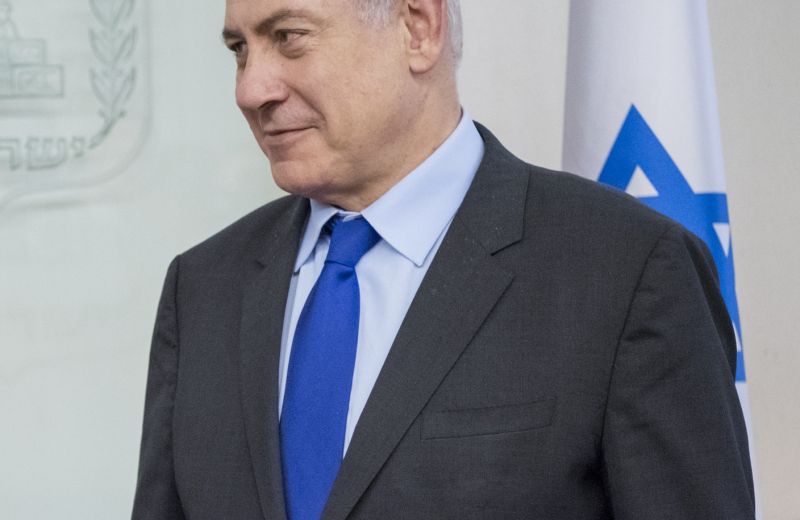 Op-eds
/ Strengthening Israel's Foreign Policy
Op-eds
/ Strengthening Israel's Foreign Policy
A pre-election foreign policy debate was held today on the campus of the Hebrew University of Jerusalem. Candidates in attendance were from four of the major Israeli parties, and in many ways, their performances mirrored their party’s current position in the Israeli political spectrum. Naftali Bennett, the rising star of the Israeli conservative movement and leader of the HaBayit HaYehudi (Jewish home) party, was confident, charismatic and straightforward. Tzachi Hanegbi, of Likud, was comfortable and affable, making a joke at one point about using his time on the podium to begin coalition negotiations with Bennett. Yaakov Peri, of Yesh Atid (there is a future) — the new centrist party formed by Yair Lapid earlier this year — was aloof and scattered, at times simultaneously agreeing and disagreeing with Bennett and Hanegbi. Isaac Herzog, of Labor, provided a sound perspective, yet seemed desperate to stay relevant to the overall discussion.
Yet, in the course of the debate, where the candidates differed was as interesting as where they agreed. When asked what would be their most pressing foreign policy issue, both Peri and Herzog pointed to the Palestinian issue and restarting negotiations as a must. Herzog, cognizant of the growing demographic gap, went as far as to proclaim that the only way to keep a Jewish democracy afloat would be through establishing a neighboring Palestinian state. Peri presented a more pragmatic approach to the negotiations, criticizing Netanyahu for not building a professional working relationship with Abbas, and proclaiming his party as the only party prepared to re-establish that relationship. For Hanegbi of Likud, the most important issue on the table was Iran; indeed, Hanegbi asserted that no matter which issue the candidates thought was the most important, should they assume office, they would be forced to address Iran above all other issues anyway. Finally, Bennett declared that “the biggest issue is that the Palestinians are not the biggest issue,” re-emphasizing his party’s commitment to focusing on domestic issues such as integration of the Haredim and lowering the 20 billion dollar deficit.
Both Herzog and Peri described the Palestinian U.N. bid as a failure of the Netanyahu government in maintaining a working relationship with the PA leadership, with Peri going as far as to describe the collective political right as “having their heads in the sand.” Both candidates warned against the possible dissolution of the PA, an oft-utilized threat as of late, while Bennett dismissed the threat, noting that there’s always someone to step up and fill the void. Bennett went on to detail his ‘stability plan,’ wherein Israel would exercise full control and sovereignty over its settlements in the West Bank, but would also remove checkpoints and restrictions on travel for Palestinians. Bennett noted that this equated the Palestinians to “something less than a state,” and also reiterated his argument against a massive return of Palestinian refugees to the West Bank, saying the influx of Palestinians from Jordan, Syria and Lebanon would have an overwhelming effect, and “put a lot of strain on the Green line.” Hanegbi, making his case to become the Joe Biden of Israeli politics, quipped that it was easy to follow Bennett, “as he makes me look reasonable.” Hanegbi’s views represented the outlook of a party in power that has for two years avoided direct negotiations. He disparaged the PA leadership and the failed negotiations, and quoted Abba Eban, Herzog’s uncle, in saying “the Arabs rarely miss an opportunity to miss an opportunity.”
The final section dealt with Iran, which equated to two out of the three questions being about Chuck Hagel. The candidates, acutely aware of the foreign media (read: American media), downplayed the Hagel nomination. Bennett called the nomination none of his business, while Hanegbi and Herzog echoed Bennett’s sentiments; only Peri went as far as to elaborate further, noting that he agreed with Hagel’s position in support of a Palestinian state. Getting back to Iran, Hanegbi and Bennett shared similar concerns. Bennett declared his willingness to accept Obama’s word on not accepting a nuclear Iran, while Hanegbi warned, “the centrifuges are spinning more and more each day.”


